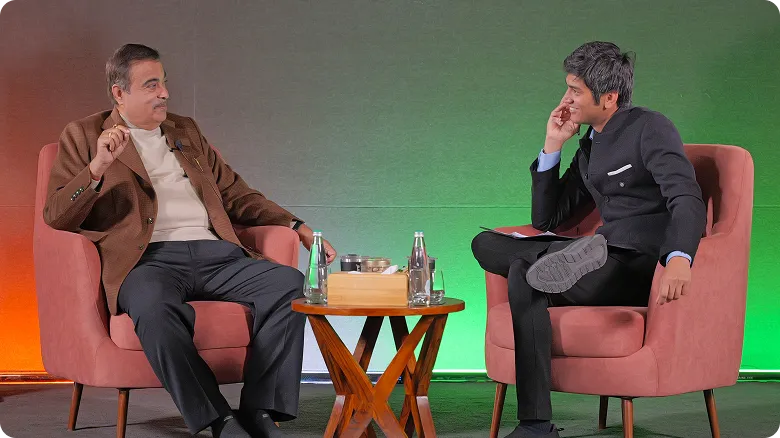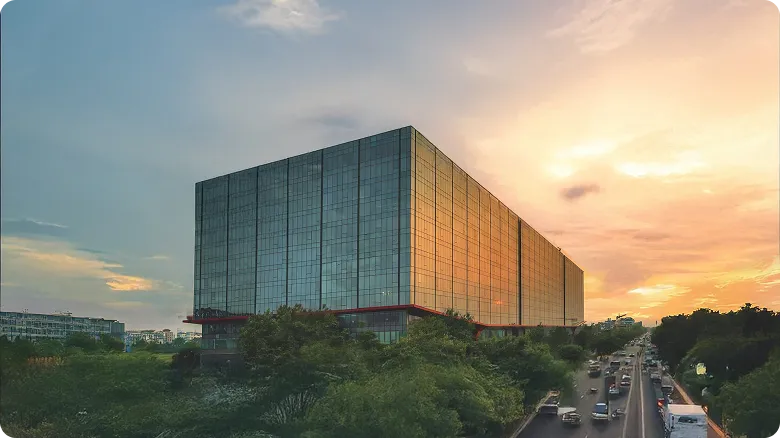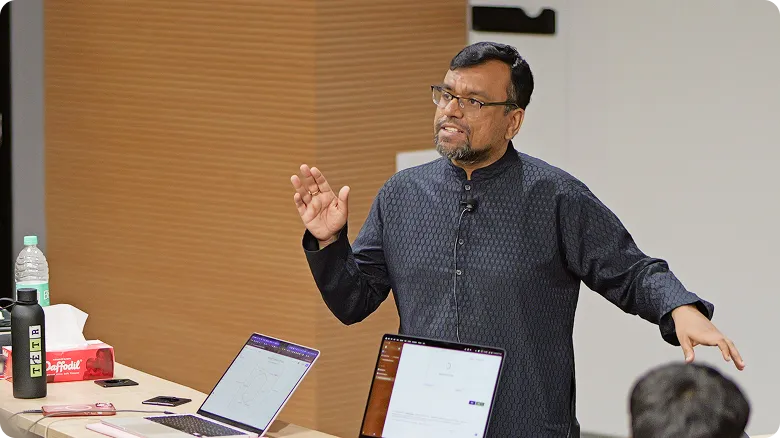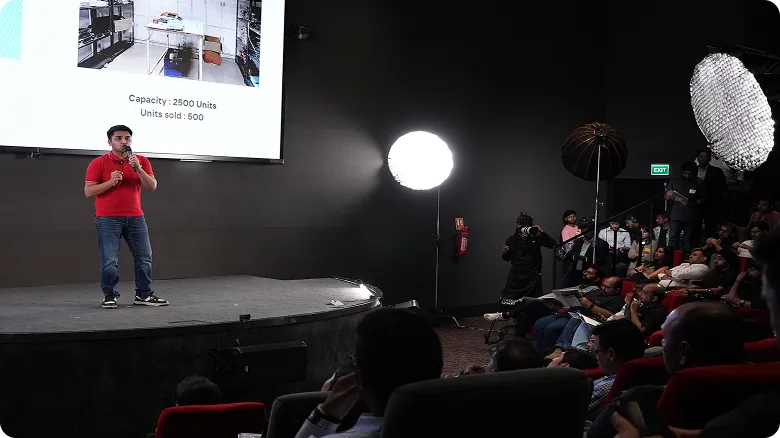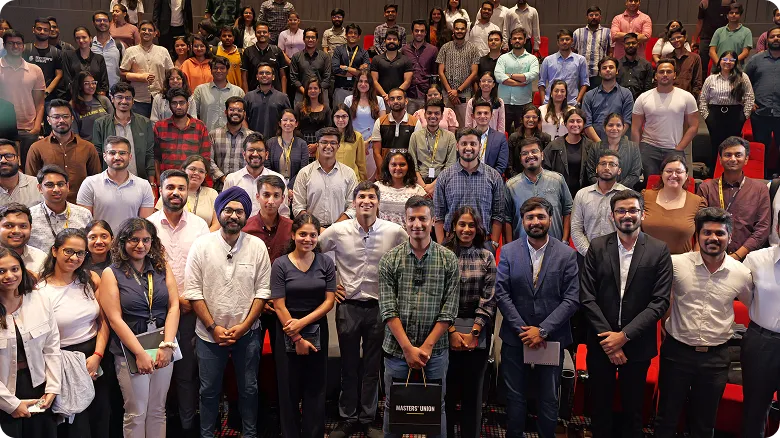Undergraduate
Undergraduate (Global)
Postgraduate
PGP in Technology and Business Management
PGP in Technology & Business Management
(Young Leaders Cohort)
PGP in Human Resources & Organisation Strategy
PGP in Sports Management & Gaming
PGP in Applied AI & Agentic Systems
PGP in UI/UX & Product Design
PGP in Sustainability & Business Management
PGP Bharat
Executive
Family Business
Careers
Innovations
Faculty
MU Ventures
Enterprise Education
Student Life
Jobs
Become a Master
events
For Companies
Blog
Business
The Future of Textile Industry in India: A Sector on the Brink of Reinvention
March 4, 2025
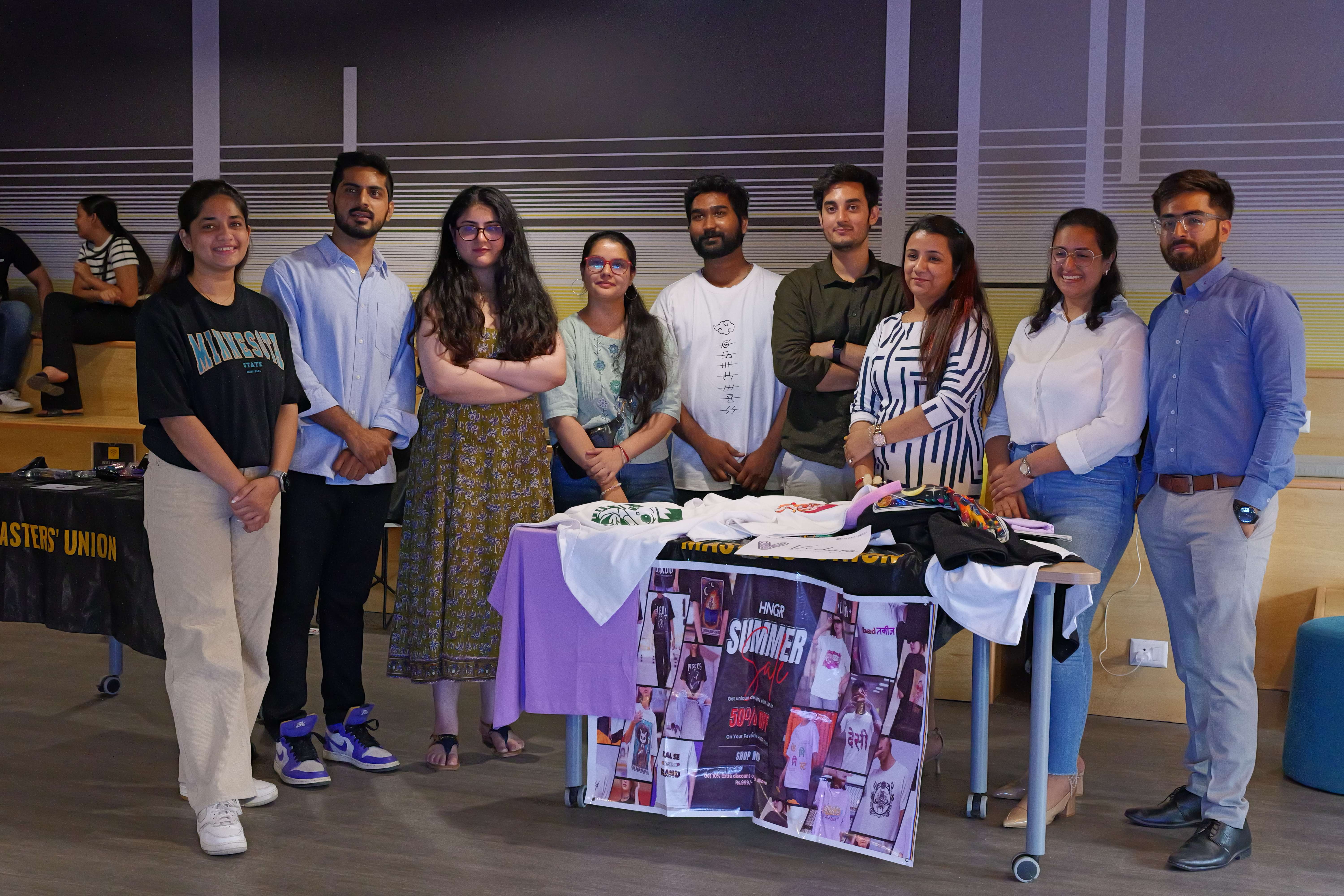
India’s textile sector has always been more than an industry — it's been a civilization's signature. From the handlooms of Varanasi to the cotton fields of Gujarat, fabric has been currency, culture, and livelihood. But in 2025, the fabric of the industry is changing fast.
A new era is here. AI is shaping production. Climate change is rewriting supply chains. Consumers are choosing purpose over price. And India, home to the world’s second-largest textile manufacturing base, stands at a pivotal crossroads.
So, what lies ahead?
-
The future of textile industry in India hinges on digital transformation, sustainable practices, and upskilling its massive workforce.
-
Global supply chain shifts present new export opportunities — but also risks due to material volatility and compliance pressures.
-
Eco-friendly textiles and circular models are not trends — they're survival strategies.
-
India’s textile exporters face rising competition from Southeast Asia, demanding higher innovation and speed.
-
With realignment, the sector could unlock new jobs, modern manufacturing zones, and global leadership in sustainable fashion.
Eco-Friendly Textiles: From Buzzword to Baseline
The push for eco-friendly textiles is no longer just about brand optics — it’s a survival imperative.
By 2030, over 70% of global fashion buyers are expected to demand traceable, biodegradable, and ethically sourced fabrics. In this context, India’s vast cotton reserves and handloom ecosystem can become strategic assets — but only if retooled for the modern supply chain.
Waterless dyeing, regenerative cotton farming, and blockchain-enabled transparency are now at the heart of innovation. Startups in Tiruppur are already experimenting with enzyme-based washing and zero-waste patterning. Yet, large-scale adoption remains sluggish.
The industry’s green transition isn’t just about meeting buyer expectations — it’s about avoiding exclusion from future trade blocks shaped by carbon border taxes and ESG tariffs.
The Battle for Cost vs. Value in Global Exports
India is still among the top three exporters of textiles globally. But this dominance is no longer guaranteed.
Countries like Bangladesh and Vietnam — with leaner compliance regimes and government subsidies — are offering similar quality at lower costs. India, while rich in legacy, now faces the uncomfortable challenge of doing more with less: faster deliveries, higher traceability, and leaner inventories.
The growth of textile industry in India will hinge on moving up the value chain — from basic yarn exports to value-added fashion, technical textiles, and performance fabrics.
FTAs (Free Trade Agreements) with the UAE and Australia have opened doors, but scale and speed remain critical. Can India’s exporters reinvent their models from capacity-driven to customer-driven?
The Tech-Textile Nexus: Where Automation Meets Artisanal
One of the most exciting — and under-discussed — trends in the textile industry in India is the merging of high-tech automation with traditional processes.
Smart looms that adapt to warp tension in real time. AI models that predict global demand cycles and optimise inventory. RFID tagging that enables every sari to tell its story from farm to shelf.
While textile automation is often seen as a threat to jobs, the reality is more nuanced. India’s future isn’t in mimicking China’s scale. It lies in combining tech with tradition — building brands and platforms that export not just product, but story.
This is where artisans, designers, and coders must co-create — and where investors should look beyond just margin sheets to IP, community networks, and material innovation.
Cotton, Labour, and the Fragility of Raw Power
Let’s not romanticise too much. The challenges in textile industry are stark — and growing.
Cotton, which fuels over half of India's textile economy, is facing erratic yields due to climate instability. Labour laws are evolving, but wages and working conditions remain a global concern. And even in 2025, many Indian firms are reliant on outdated powerlooms, low compliance, and a fragmented supply chain.
The key friction point? Transitioning thousands of MSMEs from legacy systems into Industry 4.0 — without pricing them out.
The distribution of cotton textile industry in India also creates asymmetry — Gujarat and Maharashtra dominate spinning and weaving, while eastern clusters lag in capital and connectivity. If left unchecked, this unevenness will hamper national competitiveness.
From Khadi to Carbon Credits: A New Playbook for Growth
India's textile sector could generate over 35 million jobs by 2030 — but only if it evolves its fundamentals.
That means:
-
Investing in worker upskilling with a focus on modern quality standards and technical fabric handling
-
Building sustainability-linked financing models for MSMEs, with benefits tied to environmental outcomes
-
Revamping industrial zones with plug-and-play digital infrastructure
-
Leveraging soft power — Indian motifs, dyes, and narratives — in global branding
The future prospects of textile industry in India lie not just in volume, but in value. Not just in exports, but in expression.
What Students of Business Must Learn from the Loom
In the boardrooms of tomorrow, understanding fabric might just be as valuable as knowing finance. Because the textile sector isn’t just about fashion — it’s about economics, geopolitics, labour, and sustainability all stitched together.
At institutions like Masters’ Union, the focus is on exposing students to these multi-dimensional challenges — from studying how renewable energy shifts affect spinning mills to how a D2C homegrown fabric brand scales globally via TikTok and Shopify.
The industry doesn’t need more spectators. It needs builders, systems thinkers, and innovators who understand both the loom and the ledger.
Final Thread: The Way Forward
The textile industry in India isn’t dying. It’s shedding its old skin.
The biggest threat isn’t foreign competition — it’s inertia. The world’s buyers are not waiting for India to catch up. But for those who innovate, collaborate, and modernise — the rewards are immense.
Whether you’re an entrepreneur, policymaker, or student — 2025 is your call to thread the needle.
Because the next revolution in textiles won’t come from machines alone. It’ll come from minds.
FAQ
-
What is the biggest challenge facing the textile industry in India today?
The most pressing challenge is adapting to sustainability and compliance demands while modernising MSMEs without pricing them out of global markets.
-
How important is eco-friendly fabric to the future of the sector?
Crucial. Eco-friendly textiles are no longer niche—they’re a prerequisite for export competitiveness and consumer trust.
-
What role will technology play in textile innovation?
AI, automation, and smart manufacturing will transform quality control, inventory management, and global sourcing in the sector.
-
How is India competing with Bangladesh and Vietnam?
By moving up the value chain with design-led brands, sustainable sourcing, and faster delivery cycles.
-
What can students and future entrepreneurs learn from this industry?
Textiles teach systems thinking — the interplay of design, economics, labour, and culture — all of which are vital in building sustainable, scalable ventures.







